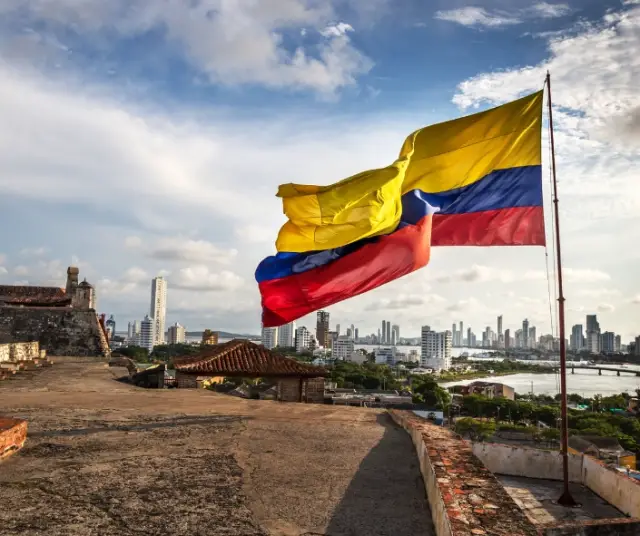Afro-Colombians are the third largest ethnic group in Colombia after mestizos and indigenous people . Throughout history, Afro-Colombians have faced many hardships, including slavery, discrimination, and social exclusion. During colonial times, Africans were brought to Colombia as slaves to work in the gold and silver mines and on the cotton, tobacco, and sugar cane plantations. These African slaves brought their own cultures and traditions with them, and over time, they merged with indigenous and Spanish culture to create the unique Afro-Colombian culture. Today, Afro-Colombians make up about 10% of Colombia's population, and are concentrated in the Pacific and Caribbean coastal regions, as well as in some urban areas.
Afro-Colombianity Day
On May 21 of each year, Afro-Colombianity Day is celebrated in Colombia, a very important date that seeks to recognize the rich culture and important contributions that Afro-Colombians have made to the country's society. In this article, we will talk about how Afro-Colombianity Day is celebrated and why it is such an important date for the culture and history of Colombia.
Afro-Colombianity Day has been celebrated in Colombia since 2001, when it was officially instituted as a date to honor the cultural diversity and historical legacy of Afro-descendants in the country. The date was chosen in honor of the abolition of slavery in Colombia in 1851, an important milestone in the fight for equality and human rights. This celebration is a recognition of the important Afro-descendant presence in the history, culture and society of Colombia. The Afro-Colombian population has historically faced inequalities and discrimination, but has managed to maintain its traditions and customs despite challenges.
Activities and events of Afro-Colombianity Day
Throughout the country, special activities and events are held to celebrate Afro-Colombianity Day. These events include parades, festivals, concerts, art and culture exhibitions, food fairs , sports activities, and many other cultural activities.
In the city of Cali, the Petronio Álvarez Pacific Music Festival is held, one of the most important events for Afro-Colombian music and culture in the country. The festival is an opportunity for artists and musicians from the Colombian Pacific region to showcase their talents and share their culture with the public.
In other parts of the country, parades and beauty pageants are organized to celebrate the diversity and beauty of the Afro-Colombian community. Educational activities are also carried out in schools and universities to raise awareness about the importance of Afro-Colombian culture in the history and society of Colombia.
In addition, during Afro-Colombianity Day, religious and cultural ceremonies are held in which the memory of the ancestors is honored and thanks are given for the gifts of life and nature. These ceremonies often include songs, dances, and rituals that reflect the traditions and beliefs of Afro-Colombian culture.
Afro-Colombian culture and traditions
Afro-Colombian culture is diverse and rich, and is characterized by music, dance, religion, gastronomy, and crafts. Some of the better known traditions include:
- Music and dance: Afro-Colombian music is very varied and has African, indigenous and Spanish influences. Some of the most popular genres include salsa, currulao, mapalé, and champeta. Dance is also very important in Afro-Colombian culture, and is used to celebrate life, death, religion, and nature.
- Religion: Afro-Colombian religion is a mix of African and Catholic traditions. The best known religion is Santeria, which is based on the worship of the orishas, the African spirits. Other rituals include spiritual cleansing and healing.
- Gastronomy: Afro-Colombian gastronomy is very diverse and is based on local ingredients. Some popular dishes include rice with coconut, sancocho, mote de queso, and bollo de yuca.
- Crafts: Afro-Colombian crafts are very rich and varied. Some of the most popular crafts include carnival masks, filigree jewelry, and palm basketry.
Afro-Colombianity Day is an opportunity to recognize and celebrate the rich cultural diversity of Colombia and the important contribution of Afro-Colombians to society. Through their traditions, music, dance, religion, gastronomy, and crafts, Afro-Colombians have enriched Colombian culture and have left a lasting mark on the country's history. It is important that we continue to work together to promote inclusion, equality and diversity in our society. Let's celebrate Afro-Colombianity Day and continue learning about the culture and traditions of our Afro-Colombian brothers and sisters.
